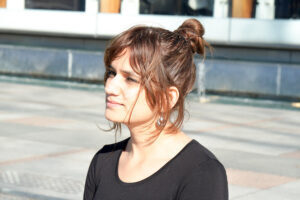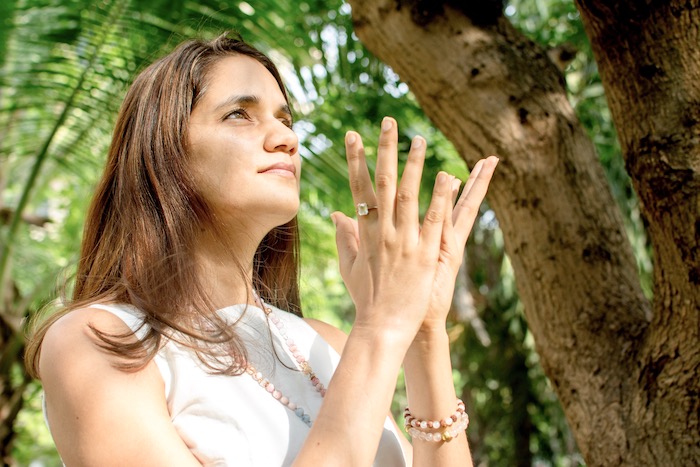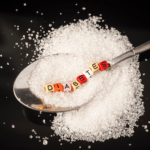I was taking my usual Wednesday morning yoga class when just before it got over I suddenly felt unwell and feverish. It was very abrupt and sudden, almost like a previously dormant switch had suddenly turned itself on. Two days later I was diagnosed with Dengue. Two weeks later I was still on bed rest, battling myriad aches and pains, constant nausea, unable to eat, sit, stand or do anything. It was frustrating, demotivating and honestly depressing.
But it did get better. I spent a lot of time speaking to others who’d had dengue as I had so many questions. I consulted two doctors and generously surfed the research archives on PubMed. That’s why I decided to write this blog to share my experience, for those who may find themselves in the same situation as mine.
Please note that I am not a doctor. This blog is based on my experience and research. I have attached the relevant research material wherever I’ve shared a medical fact.
What is Dengue?
Dengue is a severe viral infection with flu-like symptoms and it is caused by a mosquito bite. The Dengue Mosquito (Aedes Aegypti) is easy to distinguish as it is dark in colour with white bands on its legs. It feeds during the day, particularly early morning (2 hours after sunrise) and several hours before sunset.


The infected mosquito deposits the virus in the skin through its saliva when it feeds on us. The virus soon finds its way into the bloodstream causing what’s called Viraemia. And that’s what makes this virus so dangerous – once it is circulating in the blood it has access to the entire body to do a lot of damage. The body has a tough fight ahead since the infection is widespread with the potential of becoming fatal.
Interestingly the mosquito can only get the dengue virus by biting an infected human or from mother to its eggs.
Once infected, humans become the main carriers and multipliers of the virus, serving as a source of the virus for uninfected mosquitoes ~ World Health Organization (WHO)
Types of Dengue
Currently, WHO Defines two types of Dengue: Classic and Severe.
1. Classic Dengue Fever
Classic Dengue is also called the break-bone fever and can start anytime between 4 to 10 days of being bitten by an infected mosquito. High fever ranges from 102 to 104F which lasts for 2 to 7 days and is accompanied by loss of appetite and taste. Classic Dengue fever can be managed at home under a Doctor’s supervision. Patients usually recover within 7 to 10 days without the need for hospitalization. As per the WHO, a fever is suspected to be Dengue when it is accompanied by two of the following symptoms
- severe headache
- pain behind the eyes
- nausea, vomiting
- swollen glands
- muscular or joint pain
- rash
2. Severe Dengue Fever
Severe Dengue happens when classic dengue develops into a potentially fatal condition involving plasma leakage, internal bleeding and organ damage. It usually manifests between 3 to 7 days since the start of fever and is accompanied by a drop-in fever to around 100 F. Most people with a non-severe form of dengue also observe the maximum drop in platelets during these days. I had lost 60% of my platelets by Day 7.
Severe dengue can become life-threatening and hospitalization is required. WHO lists the following warning signs of Severe Dengue:
- Severe abdominal pain
- Persistent vomiting
- Rapid breathing
- Bleeding gums
- Blood in vomit
- Fatigue, restlessness
Once these appear the next 24-48 hours become very critical. Simply put – those who survive this phase don’t have severe dengue. Those whose condition deteriorates have severe dengue.
Source: World Health Organization
Why some people get Severe Dengue and others don’t
The severity of dengue depends on multiple factors, not all of which are understood today (1). But few reasons Dengue may become severe are as follows:
1. Dengue Serotype
There are four Dengue Virus serotypes called DEN-1, DEN-2, DEN-3 and DEN-4. All four are present in India and depending on which type of virus you have; your symptoms may vary slightly. While researches disagree on this, some believe that Den 2 and Den 3 infections can be more severe than other serotypes. (2)
2. Co-Infection
Co-infection means more than one type of virus is present in the body.
For example, someone could have Dengue as well as Malaria or Chikungunya at the same time. Such cases will have a higher probability of becoming severe.
It is also possible to have more than one Dengue serotype in your blood at the same time. As per a 2018 study of 60 Dengue cases in Delhi, 10 of them had been concurrently infected with more than one Dengue serotype and one of them had all four! In case of such co-infections, the chances of dengue fever becoming severe are higher. (3)
3. Secondary infection
This is when you catch dengue a second time after recovering from it once. Repeat dengue infection, called secondary infection, can be a lot more severe.
Whichever serotype of Dengue you’ve recovered from you develop immunity towards it. However, if you fall sick with Dengue again with a different serotype then such cases have a much higher likelihood of becoming severe. Therefore, preventing a second Dengue infection is very important.
4. Other Health conditions
People who are suffering from diabetes, asthma or cardiac disorders are at higher risk of severe dengue and should take extra precaution. Elderly and children are more susceptible to dengue becoming severe. (4)
Are some people immune to Dengue?
Interestingly, not everyone who gets bitten by a Dengue infected mosquito will fall sick. Some actually have no symptoms at all despite having the virus circulating in their blood – This is called Asymptomatic Dengue. Asymptomatic dengue patients will never know that they have the dengue infection but they are still potential carriers and can infect other mosquitoes if they get bitten. In fact, they are more likely to contribute to dengue virus transmission since they are unaware and hence less likely to take precautionary measures.
Why this happens with some people is not understood very well, but a few factors have been researched:
- Genetics: Some populations do not get impacted by Dengue as much as others and scientists believe this suggests the presence of a Dengue Resistant Gene. (5)
- Viral load: The number of virus particles present in the blood. This can even be impacted by the mosquito saliva, the number of bites and prior Dengue fever. (6)
- Acquired Immunity: If you’ve had dengue fever before, getting infected again with the same serotype will not produce any symptoms.
The exact course of events following the dermal injection of dengue virus by a mosquito bite is unclear. Skin macrophages and dendritic cells appear to be the first targets. It is thought that the infected cells then move to the lymph nodes and spread through the lymphatic system to other organs. Viremia may be present for 24 to 48 hours before the onset of symptoms. A complex interaction of host and viral factors then occurs and determines whether the infection will be asymptomatic, typical, or severe. (7)
Treatment
Dengue is viral in nature (not bacterial) and like most viral infections the best treatment is to rest, hydrate and wait. Eventually, the body’s immune system will kill the virus. We just need to create the right environment for our body to win this fight. You must also consult a doctor from the very beginning so he/she can help supervise the process.
Here are a few things you can do to manage it:
1. Hydration
This is the most important aspect of Dengue Treatment. You HAVE TO keep yourself sufficiently hydrated. Due to high fever, nausea, vomiting and other internal body processes, there’s a risk of dehydration, so, fluids are critical.
WHO recommends >5 glasses of ORS, milk, fruit juice, barley or rice water and other drinks containing electrolytes for average adults. Lemonade and coconut water are also helpful. Too much plain water alone can cause electrolyte imbalance. Equally too much sugar can create issues so a balance should be maintained.
The ability to take fluids orally early on is strongly linked to reduced hospitalization. In a study conducted in Nicaragua on children below 15 years of age, drinking sufficient water was statistically linked to reduced hospitalization in case of Dengue Fever. So, this is a very important step in early dengue treatment at home itself.
2. Rest
The good thing is you will not have a choice in this matter, Dengue tends to knock out the best of us and there’s little else to do but rest. Which is great and much needed as resting will allow your system to focus its energies on winning the big battle at hand. Sleep is your second ally and you should take every opportunity to snooze even during the day. Recovery also happens when you’re asleep.
3. Diet
You will likely lose your appetite and sense of taste and even the thought of food might make you nauseous, but you still have to eat. Fruits are your priority as they come with the added benefit of hydration, so eat moderately as much as you can and preferably warm, home-cooked meals. Avoid very hard to digest items like fried food or beans. Choose meals like soups, porridge or khichari which are nourishing and light. You might also develop a strong craving for spicy foods as you start to recover and hunger returns, but please strictly avoid eating such foods. Loss of taste and all the sweet fruits and drinks for hydration will push you towards wanting stronger flavours, however, always remember that moderation is key.
4. Medicine
The only medicine that your doctor may prescribe is a Paracetamol for fever and pain. Aspirin and Brufen are not given for pain management as they can aggravate dengue and increase the risk of internal bleeding. Some herbal supplements are also available in the market now such as the Papaya Extract pills – my doctor was indifferent to its use as long as I also continued eating and hydrating myself.
5. Home Remedies
There are a lot of home remedies in each culture for Dengue – in India, it is Papaya leaf juice, in Brazil, Cat’s claw and in the Philippines, the Tawa Tawa herb. Though not enough research has been done on their efficacy, so, doctors remain sceptical. However anecdotal stories and many individual experiences have been positive and people have reported improvement on the consumption of papaya leaf extract.
Both my doctors were indifferent to it and said there’s no harm in taking it as long as it does not make me nauseous or induce vomiting. They did tell me that it will make no difference to my platelet count. Some other foods that are recommended for Dengue are Dragon Fruit, Wheat Grass, Kiwi and Pomegranates (I ate a lot of pomegranates as I was constantly craving them.)
If you’re interested you can read this research paper which explores the potential of 31 medicinal plants in treating dengue.
Ayurvedic Perspective on Dengue
In Ayurvedic terms, Dengue is a Pitta-Vata imbalance. High fever is the Pitta Dosha aspect and bone-breaking aches and pains are caused by the Vata Dosha. During the high fever phase, more focus is on balancing Pitta Dosha post which the journey will be all about Vata. I developed extreme dryness in my body after Dengue and the erratic nature of aches and pains further emphasized that it was a wind element imbalance.
Ayurvedic remedies for Dengue Fever
Cooling concoctions like Coriander seed or Fenugreek seed water can be taken for managing fever. Tea made with dry ginger, tulsi, cardamom is also recommended. Coconut water or drinks made with cardamom and cloves are helpful in dehydration.
Giloy, Amla, and Tulsi help improve immunity which will take a hit post dengue so these should be a part of your recovery kit. Amla is rich in Vitamin C and helps in the absorption of iron – particularly important fo vegetarians if they develop anaemia post-Dengue. Herbal teas made with these herbs would additionally help balance Vata Dosha. Warm, nourishing foods are also good for Vata and Ghee is good for balancing both Vata and PItta. Lemon Coriander Khichadi made with added ginger is also recommended by the Indian Government’s National Health Portal.
AYUSH ministry’s guidelines to Ayurvedic Practitioners for the treatment of Dengue can be found here.
To learn more on how to balance Vata Dosha please refer to my blog here. To learn more about Ayurveda and Doshas you can read this blog.
Post-dengue Recovery
Depending on the severity of your infection the effects of Dengue last from a couple of weeks to months. My doctor mentioned that patients have extreme weakness and fainting spells even after a month of recovering from the fever.
In my case, I was unable to get off the bed for 10 days. I suffered from severe headaches, nausea, weakness and would get dizzy with even little effort. Improvement was slow but my recovery started from Day 14 when I could finally get off the bed and potter about in the house. Over the next few days, I was able to take my step count from <500 to 6000 steps a day. Day 20 is when I could finally start with gentle yoga and exercises.
Here’s a link to a free 30 min Restorative Yoga Class with supported yoga postures and gentle breathing techniques – this is one of the sequences I used while recovering from Dengue.
And exactly a month since the fever started I took up my full-fledged exercise schedule, though I had lost a fair bit of weight as well as strength by now. I did consult my doctor before re-starting my routine. He told me to forget I ever had dengue and to go back to my normal life like nothing ever happened. He did make a very interesting statement and said that this was not a sickness, it was just bad luck. 🙂
The experience taught me a very important lesson – to prevent a mosquito bite at all costs!
Preventing a mosquito bite
As per the WHO, half the world’s population is now at the risk of Dengue – which means every second person on the planet. Up to 100 million Dengue cases are reported annually. The disease is becoming rampant and the only way to avoid it is by preventing a mosquito bite.
Use Mosquito Spray
While essential oils and home remedy sprays are good to use, for complete protection you will need to use a DEET based. It is, unfortunately, the only way. If you do not like using these pesticide sprays, you could consider using them only during the peak months (generally Sep to Nov in India) or when there’s an outbreak in your area. I’ve found the good old Odomos fairly effective. I also use Repel by Boots if I need more powerful protection.
As an alternative, you can wear long clothing to minimize body exposure. Preferably light-coloured clothes as mosquitoes are attracted to dark tones.
Stay in Air-conditioning
Sitting in an airconditioned environment does reduce the risk of a mosquito bite. Because this mosquito does not do well in cold temperatures – On research discovered that below 18C the dengue virus could not be found in the mosquito’s salivary glands. However, it became active at 21C. The incidents of Dengue start increasing from 20 C till 32C and start declining again at higher temperatures because of lower mosquito survival rates. (8) (9)
Check your exercise schedule & intensity
Mosquitoes find humans by tracking our exhaled CO2 and by our smell. During an intense workout, our body secretes lactic acid in the sweat which attracts mosquitoes. This is when you are a high risk of being bitten. So, shower after a gym or avoid intense exercise outdoors when it is peak mosquito hour or season. (10)
Destroy breeding sites
Weekly clean up should be done to destroy any mosquito breeding sites in and around the house. Remember that this mosquito prefers to lay its eggs in clean water. Even innocent-looking items like a bucket placed to catch dripping water or a flower vase are potential breeding grounds. These eggs mature in about two weeks. And here’s the problem – the mosquito can spread the virus from mother to her egg. These eggs can survive up to a year in a dried state and result in a fresh epidemic next monsoon when rains can hydrate the eggs and revive them.
Conclusion
This is an evolutionary battle where the mosquito is currently winning. This mosquito has evolved to survive around humans and developed characteristics like flying faster and greatly reduced humming sound. The fact that it likes to attack low around the ankles, makes it even harder to hear or detect it.
Becoming aware of the disease, removing any mosquito breeding sides in and around our homes and preventing mosquito bites is integral to fighting this disease.
And God forbid, someone still gets the dreadful Dengue fever – just remember that in all likelihood it’ll run its course without much harm. Very few cases of Dengue become severe and our body is capable of fighting this disease on its own. What’s important is you start the rest and hydration treatment from the very beginning. It can be the make or break factor in how your body responds to Dengue.






